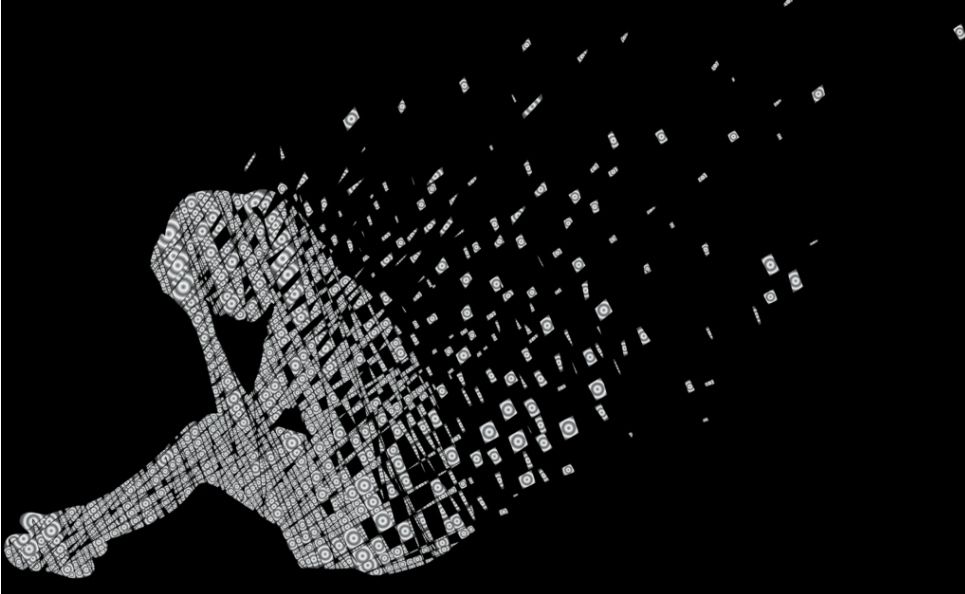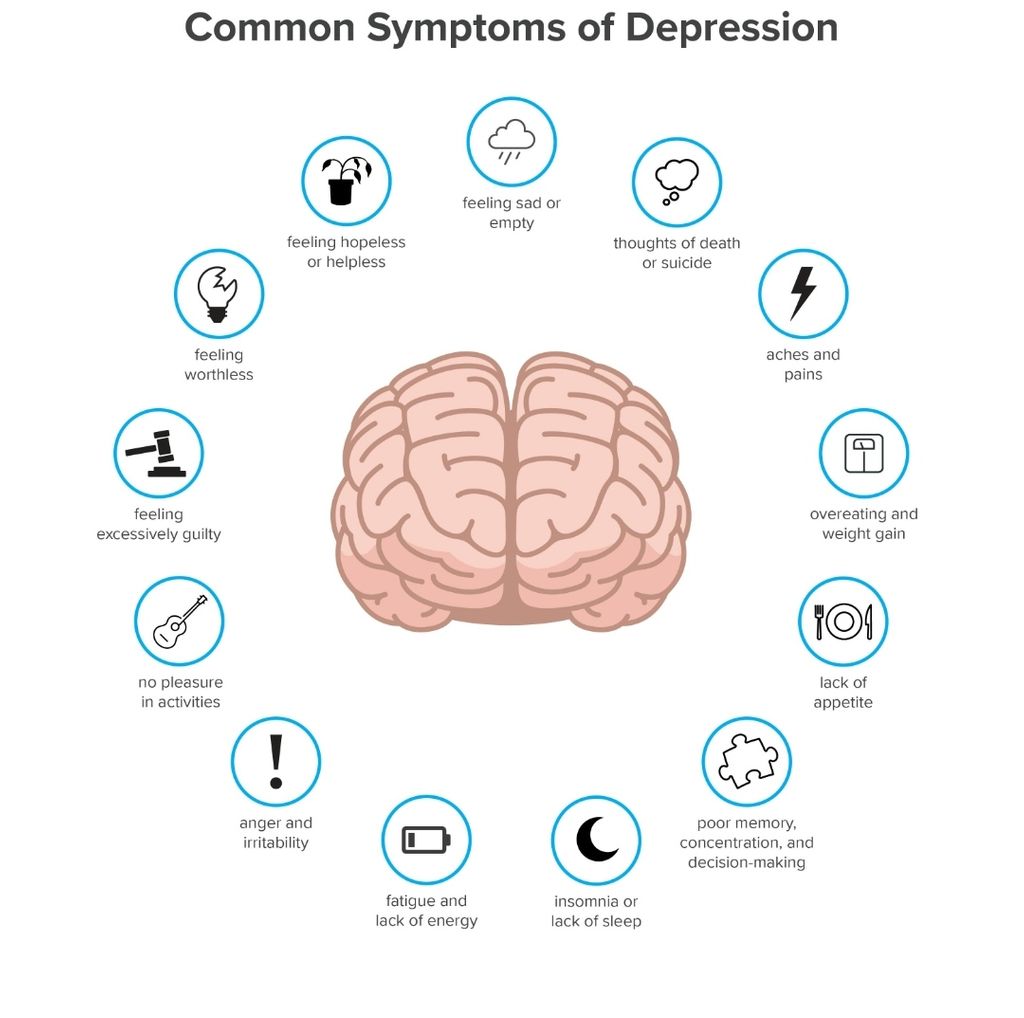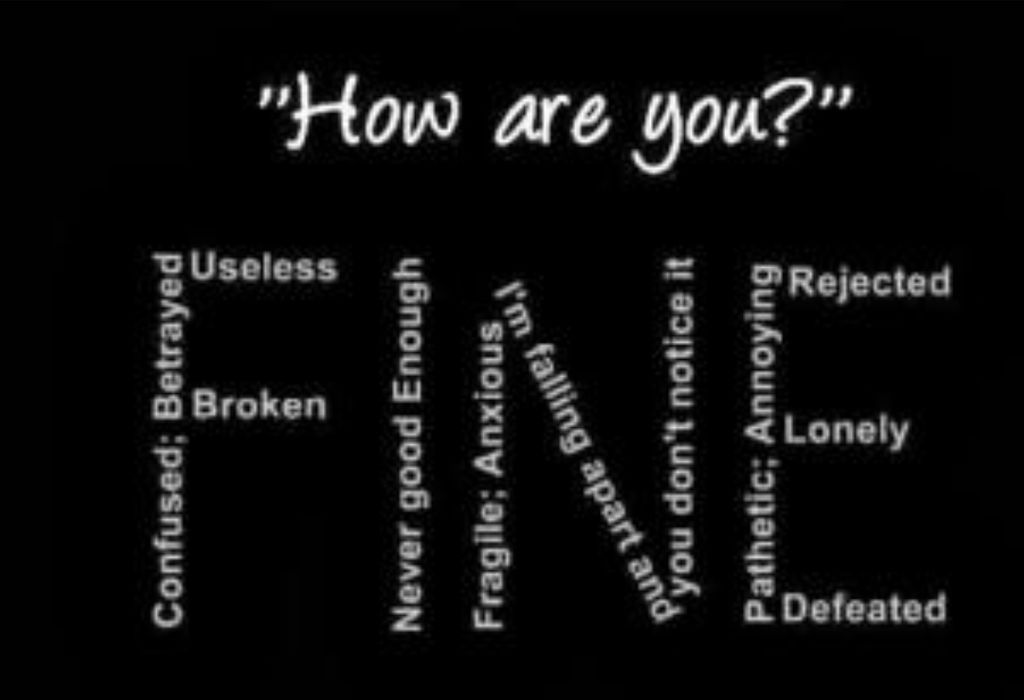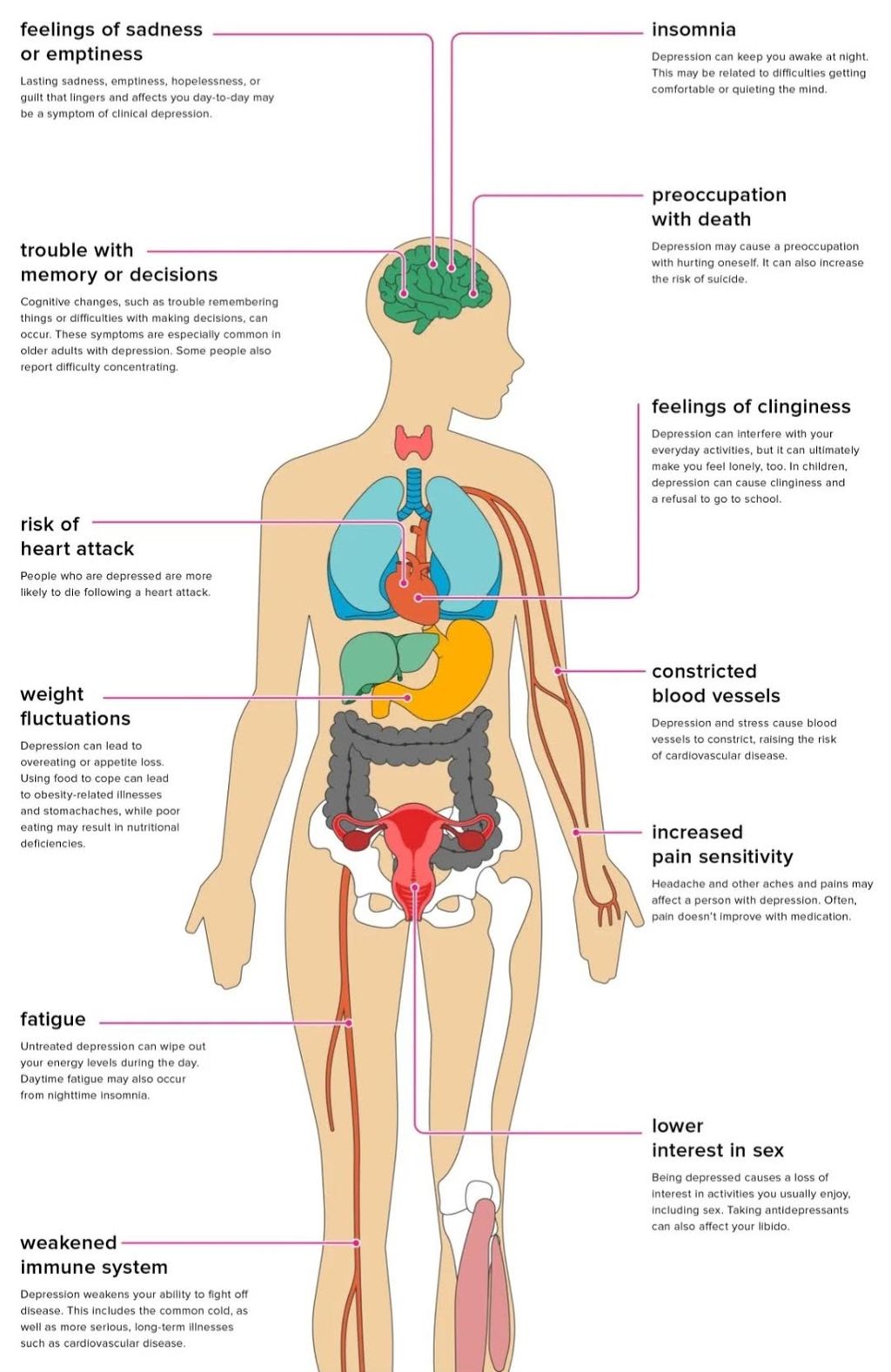Depression......
Jun 21, 2020 • 18 views
What Is Depression?
Depression is called as a mood disorder. It may be described as feelings of sadness, loss, or anger that interfere with a person’s everyday activities.
It is also common.
People experience depression in different ways. It may interfere with your daily work, resulting in lost time and lower productivity. It can also influence relationships and some chronic health conditions.

Types Of Depression.
Depression can be broken into categories depending on the severity of symptoms. Some people experience mild and temporary episodes, while others experience severe and ongoing depressive episodes.
There Are Two Main Types:
Major depressive disorder
Persistent depressive disorder.
Major Depressive Disorder.
Major depressive disorder is the more severe form of depression. It’s characterized by persistent feelings of sadness, hopelessness, and worthlessness that don’t go away on their own.
Persistent Depressive Disorder.
Persistent depressive disorder (PDD) used to be called dysthymia. It’s a milder, but chronic, form of depression.
In order for the diagnosis to be made, symptoms must last for at least 2 years. PDD can affect your life more than major depression because it lasts for a longer period.
13 Symptoms Of Depression.

There are several different types of depression, and the symptoms vary among individuals.
While anyone can experience some of these symptoms from time to time, a doctor will only diagnose depression when a certain cluster of symptoms appear, and they persist for 2 weeks or longer.
Treatment.
Many people with depression use therapy, medication, or both to control symptoms. It is important to go to scheduled appointments and take medications as the doctor prescribes them.
Treatment can take time, and a person may not feel better straight away. Antidepressants can take several weeks to work, and many people benefit from long term psychotherapy.
Some people with depression find that the following measures can help them manage their symptoms:
🔹Exercising, which can be as effective as medication in some cases
🔹Spending time with supportive friends or loved ones
🔹Abstaining from alcohol and illicit drugs
🔹Trying stress management techniques, such as yoga or journaling
🔹Avoiding taking herbs or supplements without talking with a doctor, as some may interfere with antidepressants
🔹Breaking significant tasks down into smaller ones and only doing those that are a priority
If A Friend Or Loved One Is Showing Symptoms Of Depression, A Person Can Help By:
🔹Asking them to see their doctor or another healthcare professional and helping them make the appointment if they would find that useful
🔹Offering support, understanding, and validation
🔹Continuing to invite them to events and outings
🔹Reducing stressors at home or work
🔹Helping them eat well and spending time with them outdoors.

It’s important to realize that feeling down at times is a normal part of life. Sad and upsetting events happen to everyone. But, if you’re feeling down or hopeless on a regular basis, you could be dealing with depression.
Depression is considered a serious medical condition that can get worse without proper treatment. Those who seek treatment often see improvements in symptoms in just a few weeks.
Having one of these symptoms does not mean that a person has depression. For instance, other health issues and some medications can cause weight gain or insomnia.
However, people who have one or more of these symptoms and are concerned about depression should still speak to a doctor.
There is no single test that can diagnose depression. Usually, a medical professional will evaluate a person’s symptoms, family history, and medical history to make a diagnosis. They may also use specialized questionnaires and screening tools.
If a person suspects that they may have depression, they should speak to a doctor or other healthcare professional. Early treatment can ease symptoms and prevent them from getting worse.
Causes OF DEPRESSION.

Depression is a treatable mental health condition that can cause a range of symptoms.
Anyone who is concerned that they or a loved one is experiencing symptoms of depression should speak to a doctor. Proper care for depression can significantly improve quality of life and even save lives.
